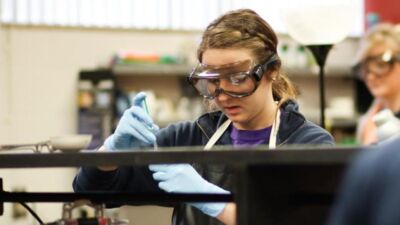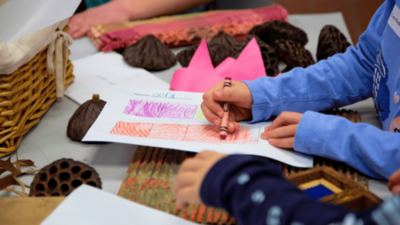Career Spotlight: Driving medicine forward as a biomedical engineer

Have you ever wondered what it would be like to design life-changing medical implants? Or whether you could contribute to the field of medicine without having to be a surgeon? Or even if you could find a career that combined the disciplines of engineering and product design with healthcare? If so, biomedical engineering could be where you find your niche and your calling.
Concordia University, Nebraska can prepare you for a career in biomedical engineering starting at the undergraduate level with a major in the natural sciences, such as biology, chemistry, biochemistry or physics. You may even choose to take courses in the pre-engineering program to expand your knowledge base. According to the U.S. Bureau of Labor Statistics, a mix of courses in engineering and biological sciences are the best path of preparation for future biomedical engineers.
Typically, biomedical engineers work in medical research, medical equipment manufacturing, or healthcare supply facilities. However, their work environment can vary greatly based on their current project and specialty. For example, a biomedical engineer who’s developed a new technology to be used in patients with heart problems might spend time in a hospital testing their technology.
As for specialties, biomedical engineers have the option to pursue work in nearly any subset of the medical industry that interests them. Biochemical engineers, for example, might focus on creating products that address important issues about the safety of certain substances. Biomaterials engineers, on the other hand, usually study natural or lab-made materials for use in medical implants and devices. The options are practically endless – biomechanics, genetics, human physiology – wherever your interests align with the medical field, chances are there will be a role for you there as a biomedical engineer.
However, many of these positions may also require employees to hold advanced degrees. If you are interested in biomedical engineering but also want to lead a research team or develop your own projects, you should consider pursuing a master’s or Ph.D. in your desired focus area. Attending graduate school can provide you with a major advantage in any industry, including biomedical engineering, when it comes to landing a leadership role. It also opens opportunities for research experience – which is beneficial, as much of the field of biomedical engineering is research-based.
Some typical tasks or roles for biomedical engineers might include designing parts for medical technology, installing this technology for healthcare providers, running trials that review the efficacy of biomedical equipment, or compiling findings into a written analysis. Evidently, the roles of a biomedical engineer are generally quite research- and testing-centric!
Despite the hard work and even challenging problems inherent to working as a biomedical engineer, the reward tends to be great. These professionals earn a salary of just over $100,000 annually, with job growth predicted at about 7% over the next decade – both statistics that are higher than average for all occupations. However, the highest-paid tenth of biomedical engineers may earn over $150,000 annually! This salary is lucrative, especially for professionals that usually stick to a 40-hour work week.
Overall, a career as a biomedical engineer is perfect for students with interests in engineering and natural sciences like biology. Designing new technologies, completing research and working with teams of medical professionals are all appealing roles of these professionals. So consider yourself as a biomedical engineer, and you may find that God is calling you to drive medicine forward.
The natural sciences department at Concordia University, Nebraska offers its students a wide range of opportunities in biology, chemistry, physics and more with modern laboratories, research opportunities and challenging courses led by Concordia’s excellent natural sciences faculty. Explore your options as a future science student here.
Interested in science programs at Concordia?
Related Stories


